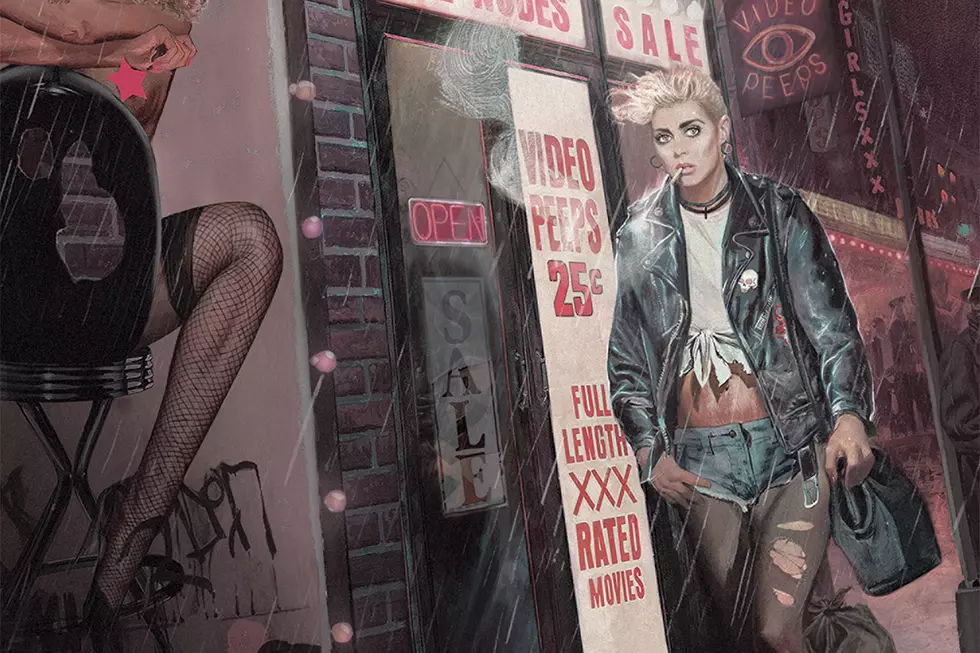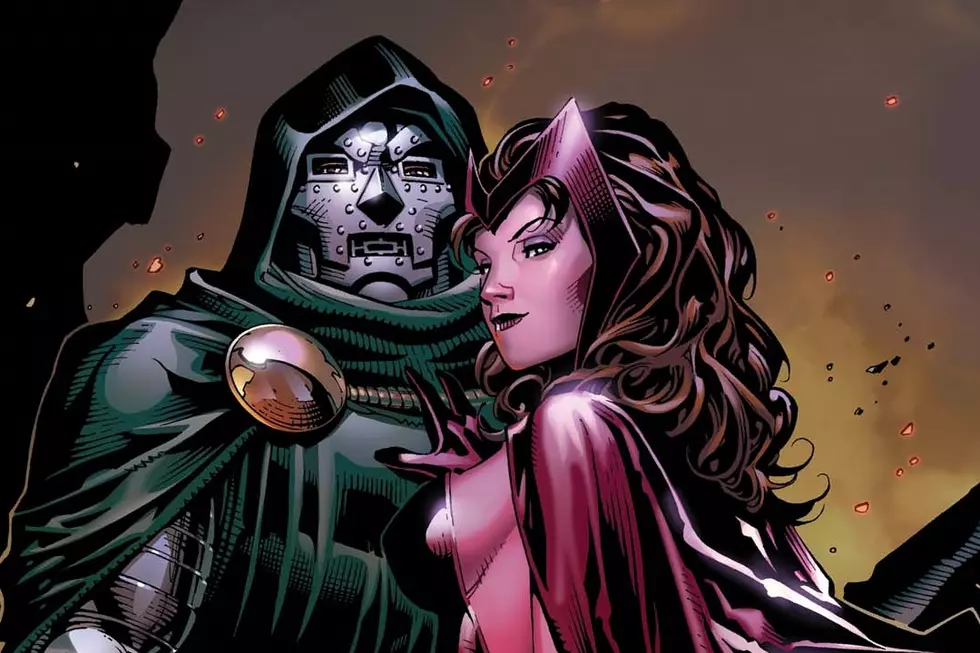
Faust And Phillips On The True Stories Behind 'Peepland'
Titan Comics and Hard Case Crime's collaboration has already produced a number of interesting and exciting crime comics, and their flagship title Peepland is the cream of the crop. Written by Christa Faust and Gary Phillips, with art by Andrea Camerini, it's based on Faust's own personal experience of the seediest parts of Manhattan in the '80s, focusing on the peep shows of Times Squad.
With one issue available now and another out this week, Titan has provided us with a creator commentary by Faust and Phillips, describing their thought processes behind each page, including stories from Faust's life, and notes about the real life inspirations for certain characters and locations.









